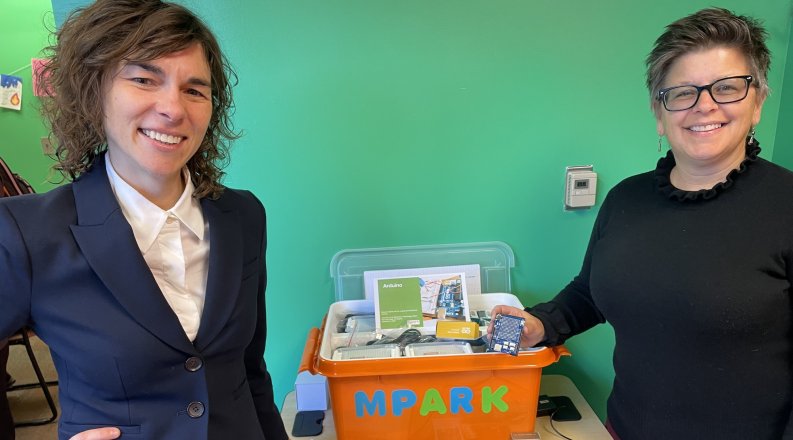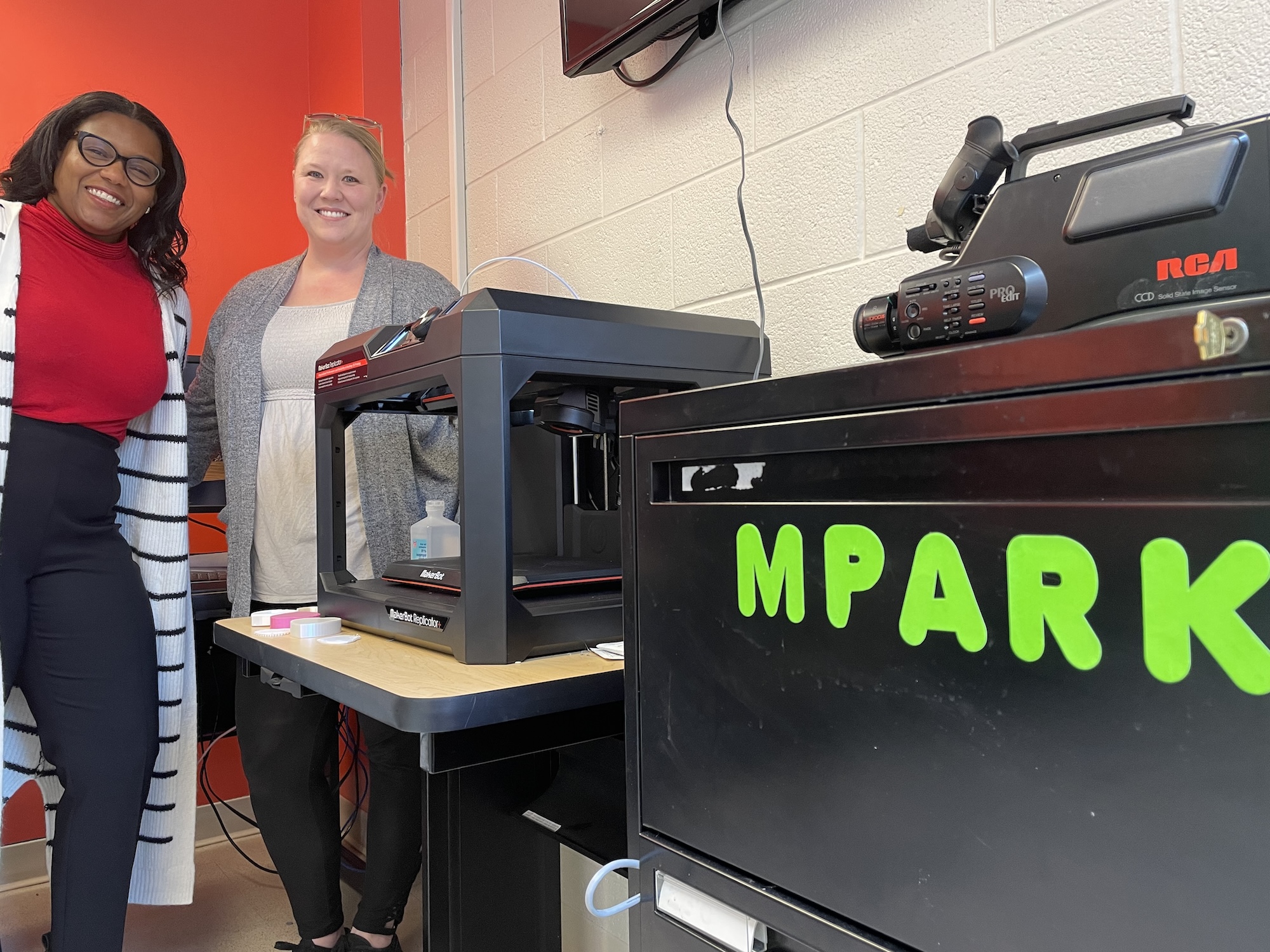By Sam McDonald
It’s compact in size, but there’s nothing small about the ambitions behind a new, humanities-focused makerspace at Old Dominion University.
Called mpark, it opened late 2023 in Room 2027 of the university’s Batten Arts and Letters Building. Outfitted with a 3D printer, Arduino electronics learning kits, sewing machines, video recorders, cameras, printers and other tools and software, it functions as a miniature makerspace “that nurtures nonhierarchical collaborations across disciplines,” wrote Margaret Kilcline/Konkol, an assistant professor of American literature and digital humanities and director of the new workshop.
“We invite faculty of all levels, undergraduate and graduate students, and staff to find opportunities for collaboration,” Kilcline/Konkol wrote. “In the spirit and ethos of the Digital Humanities, which is a big-tent field, we welcome practitioners from all College of Arts and Letters disciplines.”
Below, Kilcline/Konkol answers questions about the new endeavor and her hopes for its future.
Where did you get the idea for mpark?
I got my first taste of the magic of makerspaces at University of Victoria’s Digital Humanities Summer Institute. Jentery Sayers and Matt Huculak and others were at the center of an exciting makerspace movement in the UVic English Department and over the course of a one-week intensive workshop (I call it nerd camp at its finest), they introduced me and about 15 other souls to modeling and prototyping using SketchUp, AutoCAD, Arduinos, and laser cutters. The lab itself was a bright orange and yellow sunny space filled with people making things and helping others invent and create … I've since had wonderful help from Beau Turner at 757 makerspace right here in Hampton Roads and met up with the maker folks at Norfolk State as well.
What were your previous experiences as a maker at ODU?
In 2018, when I was in search of access to a 3D printer to print my alphabet project … A generous former ODU professor of painting and sculpture, Allison Stinely, printed my SketchUp files for me on her printer. That saved my project!
But I really wanted to be able to tinker with the shapes myself, and, of course, to teach students and share the joy of making. Until now College of Arts and Letters faculty and students have had no makerspace.
How would you respond to someone who doubts that humanities students need to learn technologies like 3D printers?
Writing is perhaps the oldest human technology — so it makes SO much sense to study text technologies from textiles to early forms of printing and onward to digital typesetting and 3D printing.
What piece of technology would you most like to acquire for mpark?
I would love to acquire a Glowforge laser cutter as well as a budget letterpress printing press such as an Adana. If we hit the jackpot for vintage printing presses, I'd jump a mile for a Vandercook printing press. I worked on a Vandercook in graduate school, making small press posters and many people in the media studies, poetics and art programs use them for typesetting and printing chapbooks. In the meantime, we are actively soliciting donations for people’s cast-off typewriters and silk screen machines.
What do you want mpark to look like in five years?
I imagine mpark as a hub of activity. I'd have the graduate assistant staff to keep the space open 9-5 p.m. Perhaps we could also have a postdoc [a person conducting research after the completion of their doctoral studies] on staff for running special projects Monday through Friday and we'd be hosting faculty-student collaborations as well as offering collabs with semester-long courses. We'd have 3D printers churning out newly designed objects to house Arduino projects that could help us better understand and improve our environmental and social conditions, sewing machines running, teaching people how to reuse and repair textiles, and countless other wonderful things.
Hey, if we are super busy, perhaps in five years we could relocate to a bigger space or even collaborate with the library or Strome College of Business or Engineering — just as long as mpark continues to welcome and support Arts and Letters faculty and staff.




